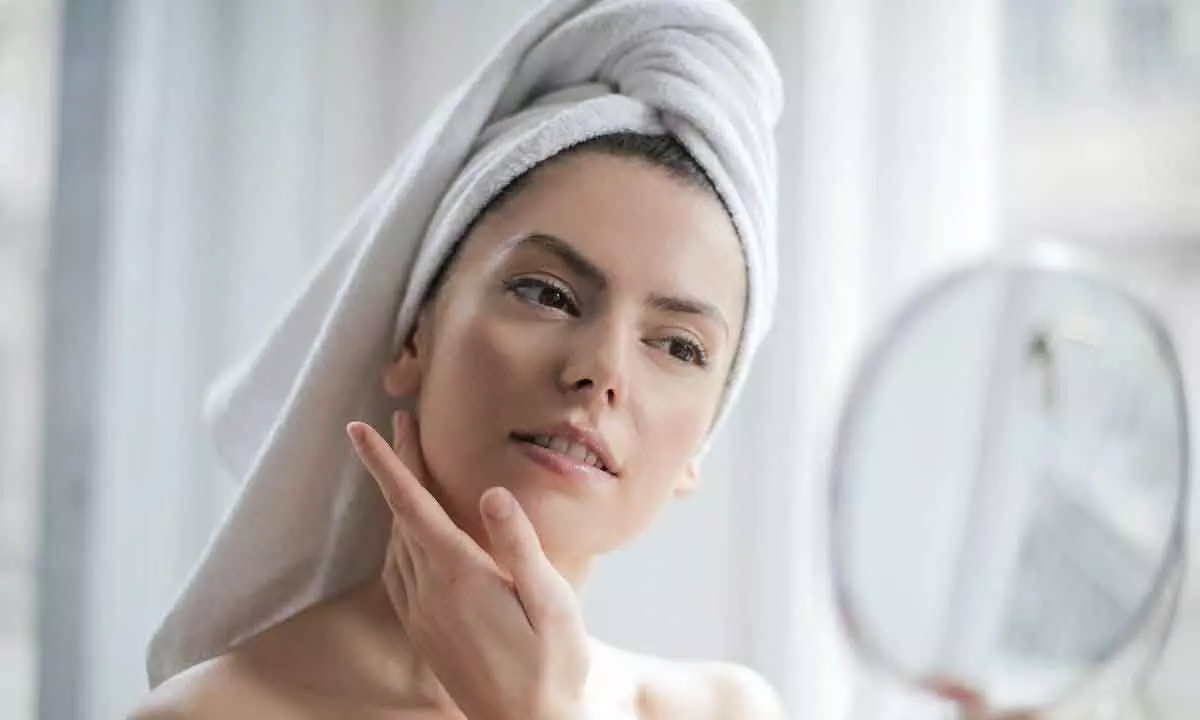Ageing Gracefully

Our bodies’ needs and capabilities change as we age, and our skin is no exception. Sometimes the skin may transform more rapidly than necessary, if certain factors are at play such as pollution, unhealthy habits, hormonal and metabolic change. The skin becomes thinner, developing your first fine lines and wrinkles. It also loses its radiance and elasticity; no longer appearing as supple as it once did. While these are natural processes, there are certain skincare ingredients like hyaluronic acid and collagen that can actually reverse signs of ageing.
Role of hyaluronic acid and collagen
Both, hyaluronic acid (HA) and collagen, have become a mainstay in cosmetics and skincare - supplements, injectables, and topical. These ingredients are critical to keeping your skin looking healthy and youthful, but they work in different ways. For instance: hyaluronic acid helps to plump up the skin and reduce the appearance of wrinkles, in contrast, collagen helps to rebuild and strengthen the skin’s connective tissues from within.
Hyaluronic acid is a naturally-occurring substance found in the human body. It’s present in large concentrations in the skin, where it helps keep the complexion hydrated and plump. In fact, hyaluronic acid is responsible for up to 30 per cent of the skin’s natural moisture-binding ability, but its production depletes over time as you age. Similarly, collagen is a protein that your body naturally creates. Like hyaluronic acid, as you age your body produces less of the protein. As collagen plays a role in strengthening skin and increasing elasticity and hydration, wrinkles develop when your body starts producing less. In recent years, people have started using hyaluronic acid and collagen-enriched skincare products and supplements. But for longer-lasting effect and better results, bio-remodelling is a practical choice.
Collagen and hyaluronic acid go together like best friends. They complement and support one another for maximal, effective benefits. Hailed as the break-through treatment for anti-ageing, Profhilo, also synonymous with bio-remodelling, is the latest innovation in the field of aesthetic procedures. With one of the highest concentrations of ultrapure HA on the market, the treatment tackles anti-ageing directly from within the skin itself, stimulating collagen production and strengthening the support networks in the skin to reduce fine lines and wrinkles. Moreover, hyaluronic acid plays a key role in tissue regeneration, specifically in repairing skin, and has been found very effective in healing wounds. Rather than being a volumising filler or muscle relaxant, Profhilo can be seen as more of an advanced injectable moisturiser. Besides the face, Profhilo can also be injected into neck, hands and other areas with high skin laxity.
Foods for boosting hyaluronic acid and collagen
The importance of nutrition is paramount, since we know that the skin is nourished from the inside. If you’re not eating right, your skin will show it. While there are many approaches to eating healthy, certain foods are guaranteed to up your beauty game.
Adding bone broth, foods such as soy products, oranges, bell peppers, tomato, cashew, almonds, kale, beans, and sweet potatoes will provide nutrients that may naturally ramp up your body’s synthesis of hyaluronic acid and collagen and give you a healthier glow.
It is also important to reduce or cut out alcohol, coffee, foods and beverages high in sodium and sugars as they all contribute to systemic dehydration, which may show up as skin that looks dull and non-plump. Do your best to limit your intake of processed foods, and increase the intake of water to keep the skin hydrated.
Using the right skin care ingredients, making a few lifestyle changes, and having patience can help your skin in aging gracefully and keeping it look its best through the years. A trustworthy dermatologist can help you create a personalised skin care plan by assessing your skin type, evaluating your skin’s condition and recommending products and aesthetic procedures likely to be effective.














